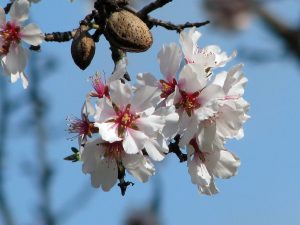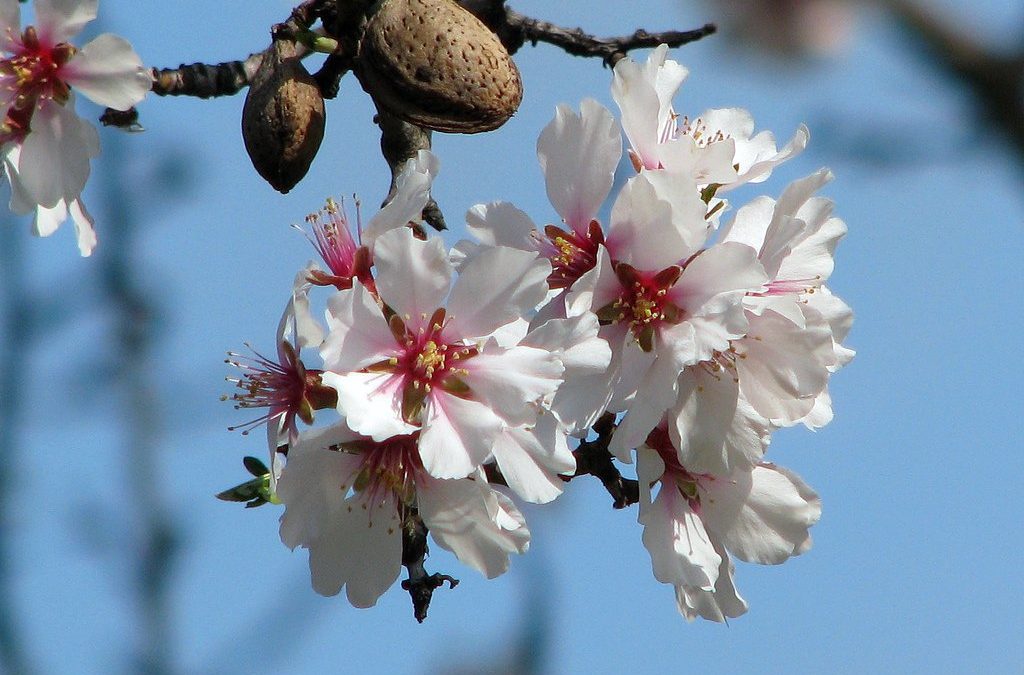 In the wake of Korach’s rebellion in this week’s Torah portion, G-d instructs each tribe to place a wooden staff, labeled with its leader’s name, in the holiest chamber of the Tabernacle. G-d promised a sign to confirm the appointment of Aaron as the High Priest, contrary to the complaints of Korach and his men. The staff of the true High Priest would sprout in miraculous fashion, and in so doing bring an end to the complaints. And, indeed, that is what happened — the staff of Aharon, from the tribe of Levi, sprouted flowers and bore almonds.
In the wake of Korach’s rebellion in this week’s Torah portion, G-d instructs each tribe to place a wooden staff, labeled with its leader’s name, in the holiest chamber of the Tabernacle. G-d promised a sign to confirm the appointment of Aaron as the High Priest, contrary to the complaints of Korach and his men. The staff of the true High Priest would sprout in miraculous fashion, and in so doing bring an end to the complaints. And, indeed, that is what happened — the staff of Aharon, from the tribe of Levi, sprouted flowers and bore almonds.
What was the miracle here? What made this an obvious sign from Heaven that Aharon was truly the High Priest? Of course, it was the unexpected blossoming of a dry piece of wood, disconnected from the ground. In reality though, all of the millions of trees that flower and produce fruit are just as miraculous.
I had the opportunity to visit a magnificent botanical garden recently. My wife and I marveled at the seemingly endless variety of flowers and plants. Kingly cacti towered twenty feet over us in the conservatory, and artful masterpieces bloomed from tiny orchids. If we could say this, the sheer creativity of the Creator Himself was on full display. Just when we thought we had seen it all, we walked outside to the ponds to admire the lily pads sprouting stunning flowers from underneath the water – massive lily pads, and miniature, shaped like rimmed serving platters and Pac-mans.
Needless to say, we had seen flowers and plants before. So why were we so overwhelmed by the detail and beauty of the gardens? Because an unusually bountiful collection of such variety and contrasts triggered our appreciation. One flower is truly magnificent, but we’re used to it, and it no longer inspires us.
Aaron’s flowering dry staff, was truly a miracle. But the miracles occurring all around us, in plants, fish, anatomy, psychology, and the numerous fields of wisdom go unnoticed and unappreciated. Because we see them happen every day, every year, we regard them as “natural,” and learn to pay them no mind. (Based on Sefer Ohr Yahel, Rabbi Leib Chasman zt”l).
Observe young children as they discover the world for the first time, and you’ll notice the wonder that lies beneath our routine experience. They gently touch a pretty flower (hopefully gently), as if they’re holding precious gems. They scream and marvel, jaws dropping, as they gaze at an elephant for the first time. Little babies will hold a wooden block and feel the sharp corners, and then put it in their mouth to fully experience the texture. If we approach G-d’s world with childlike innocence, we can learn to appreciate the ongoing display of His grandeur and be drawn to learn more about Him and connect with Him.




